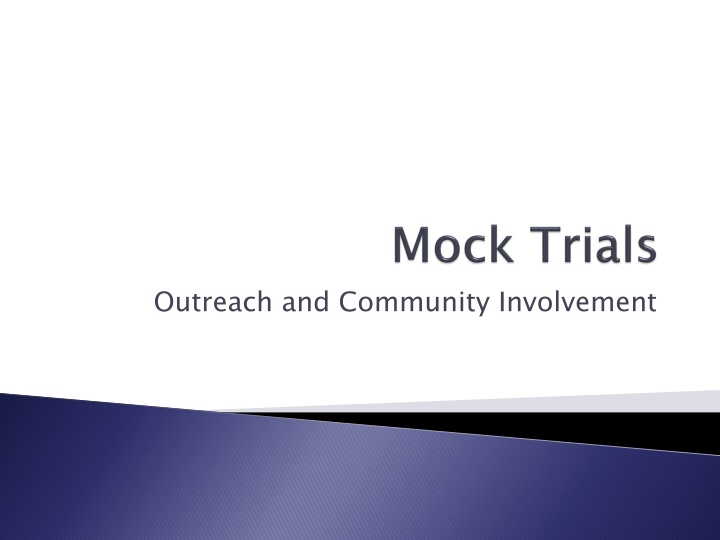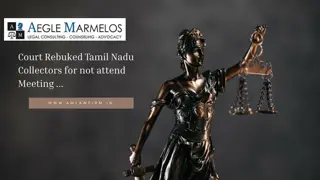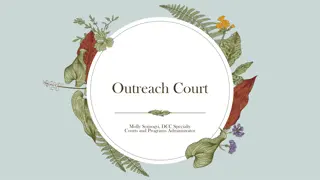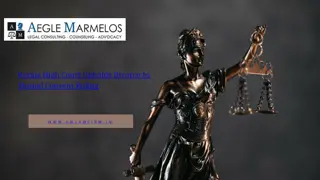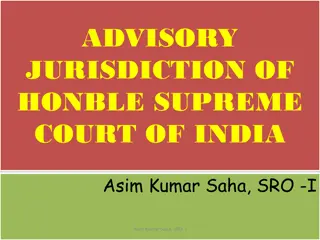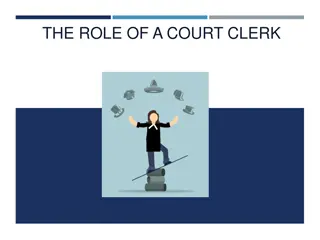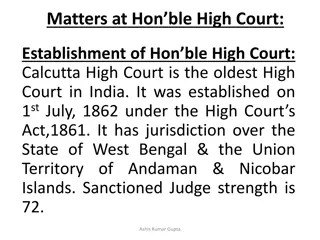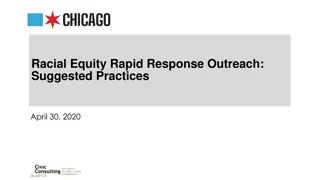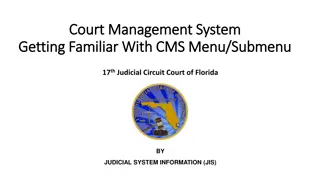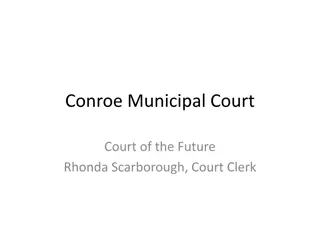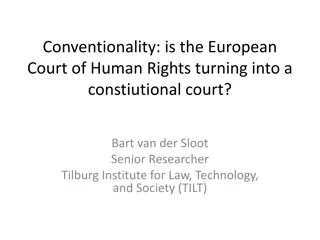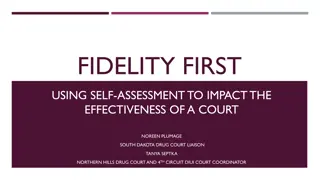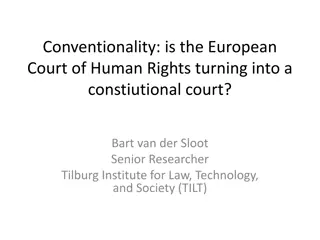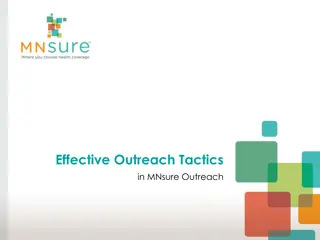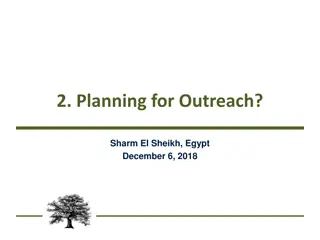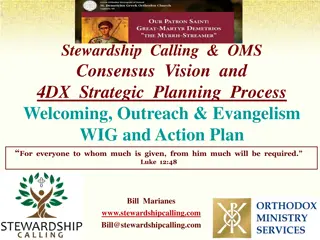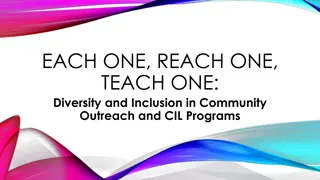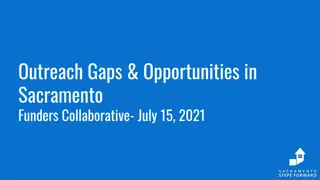Engaging Community Through Court Outreach Programs
Explore the significance of community involvement in court outreach programs, including benefits, partnership opportunities with schools, involvement of court personnel, and conducting mock trials. Learn how to prepare, select participants, and tailor activities for different age groups, enhancing understanding of the judicial system and fostering a positive relationship with the community.
Download Presentation

Please find below an Image/Link to download the presentation.
The content on the website is provided AS IS for your information and personal use only. It may not be sold, licensed, or shared on other websites without obtaining consent from the author.If you encounter any issues during the download, it is possible that the publisher has removed the file from their server.
You are allowed to download the files provided on this website for personal or commercial use, subject to the condition that they are used lawfully. All files are the property of their respective owners.
The content on the website is provided AS IS for your information and personal use only. It may not be sold, licensed, or shared on other websites without obtaining consent from the author.
E N D
Presentation Transcript
Benefits Preparation Material Selection Conducting Trial Debriefing
Community outreach Courts role in the community Agency partnerships Public involvement Proactive contact Educational opportunity Court processes Roll of Juror Understanding consequences
Partnership with school Juvenile case management Champion the U.S. Judicial system Develop positive attitudes towards your court Student exposure Future involvement as parties, witnesses or jurors in trials Exposure to law-related careers Develop Skills: Critical analysis of problems Strategic thinking Questioning & Listening skills Oral presentation & Extemporaneous argument Preparing & Organizing material
Outline critical educational points (goals) Develop questions for Debrief Court personnel involvement: Judicial Prosecutor s office Clerk staff Law enforcement Contact local schools/agencies Elementary through High School Counselors, teachers, principals, etc. Useful in classes such as: Government, History, Debate, Criminal Justice Establish point of contact and coordination
Know your participants & audience Use age appropriate interesting cases Select Type of Mock trial appropriate for group Know your time frame For preparing & implementing 4 Major Types Fully-scripted w/ court staff Fully-scripted w/ students Role Play w/ court personnel as themselves Role Play w/ students as attorneys
Court staff plays all roles/ students are the jury Appropriate for: Younger students Court staff involvement Quick turnaround time Schools interested in field trips Downfall: Lower involvement level Unscripted Jury Directed verdict
Students read script and fill all major roles Appropriate for: Middle School thru High School Grade Level Limited staff involvement Limited preparation time Student volunteers necessary More student involvement Unscripted Jury Directed verdict
Unscripted Use a case summary of facts Provide reports & statements For older students Role Assignment: Students: defendant, witnesses, officers & jurors Staff: judge, attorneys, bailiff, clerk Requires more preparation
Students have more freedom with their characters and their responses Benefits: Students are more involved Trial is more realistic Authenticity because professionals in own roles
Appropriate for: High School age students Schools with debate programs Availability for time commitment Benefit: Best learning experience for those involved Judge controls flow of event
Preparation: Case selection & story development Schedule attorney meetings with student participants Types of questions to ask Prepare & present opening/closing statements Witness prep Reviews court proceedings, legal terms, what needs to be proved and simple objections
Create your case Can choose an interesting case from your own court Look Online Can find Case Summaries & Scripted Mock Trials TMCEC website has both types available http://19thcircuitcourt.state.il.us/services/pages/moc k_trials.aspx
Jury summons Secure a list of students that will be attending Prepare summons for jury duty to be given to all students in attendance Subpoena s for witnesses & officers Provides a sense of reality to the mock trial Prepare all relevant documents
Separate actors from potential jurors Review last minute details with players in trial Explain jury selection process Randomize and seat students as you would a jury Explain the process of jury selection Summons Challenge to the array Voir dire Premptive challenges Jury Selection: Attorneys select jurors Select 2 juries if possible
Conduct trial Limit interruptions Time Management Note Observations for debrief At end of trial, Separate the two juries for deliberation. While jury deliberates, discuss trial with audience
Debrief: Focus learning on goals Allows for questions Identify & expand on teachable moments Debriefing process: Review the issues Discuss what can happen during deliberation Discuss strengths and weaknesses of both sides Does our system assure a fair trial? Are some parts of the trial more important than others? Would you trust a jury to determine your fate
Practice Trial Type Presentation
San Marcos Municipal Court of Record 630 East Hopkins St San Marcos, TX 78666 (512) 393-8190 San Marcos Municipal Court of Record Susie Garcia Court Administrator Sugarcia@sanmarcostx.gov Susie Garcia Lindsey Mena Juvenile Case Coordinator Lmena@sanmarcostx.gov Lindsey Mena
